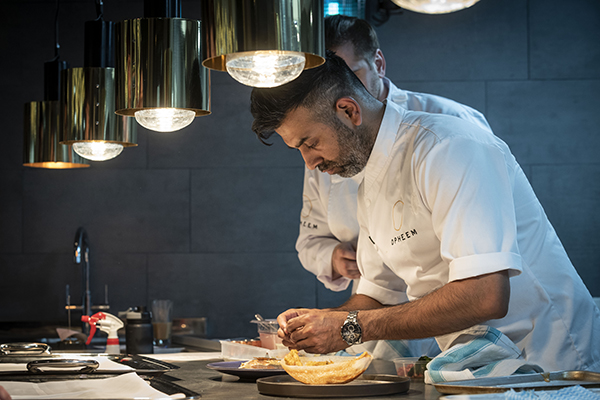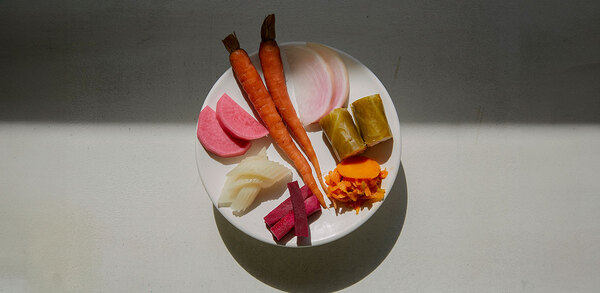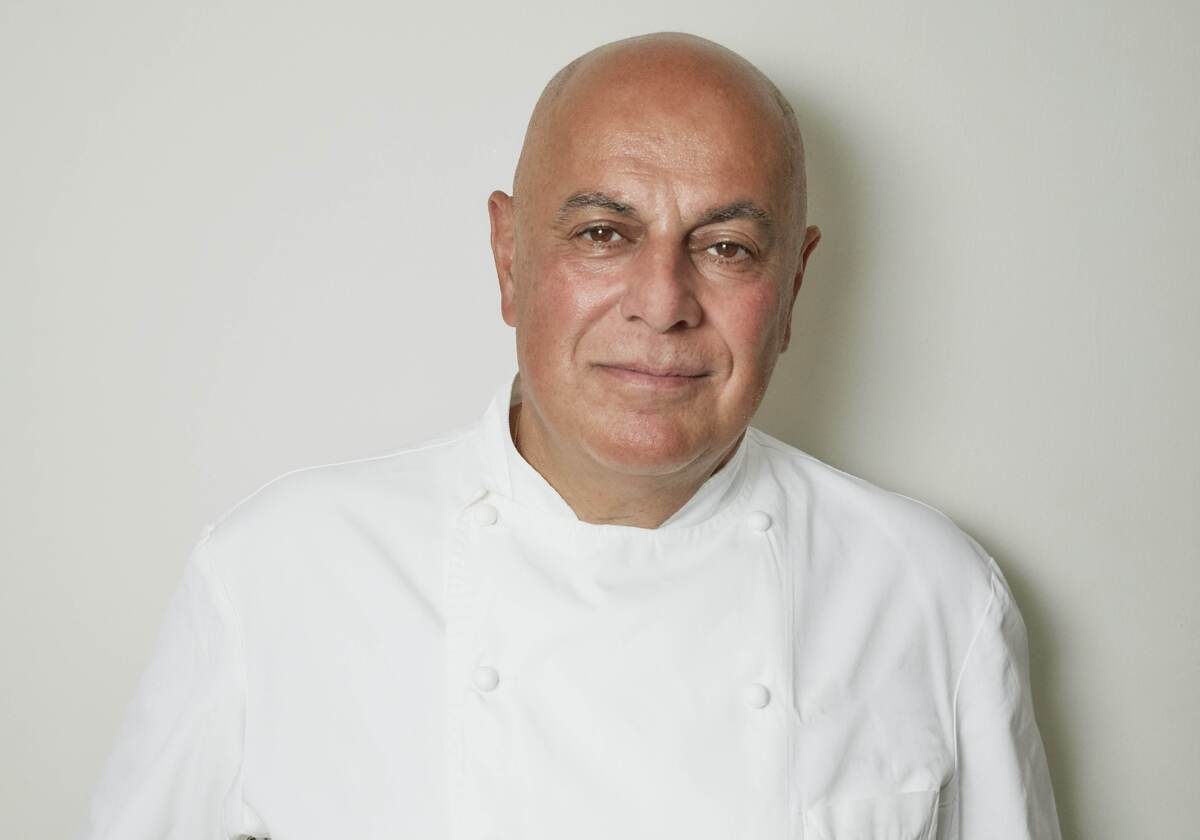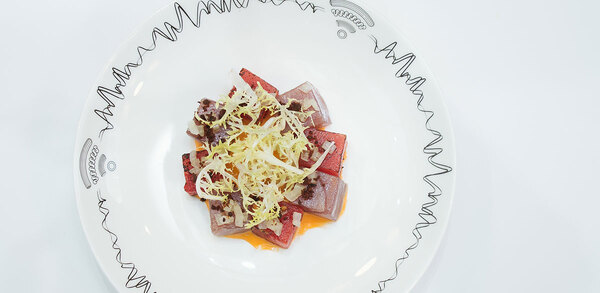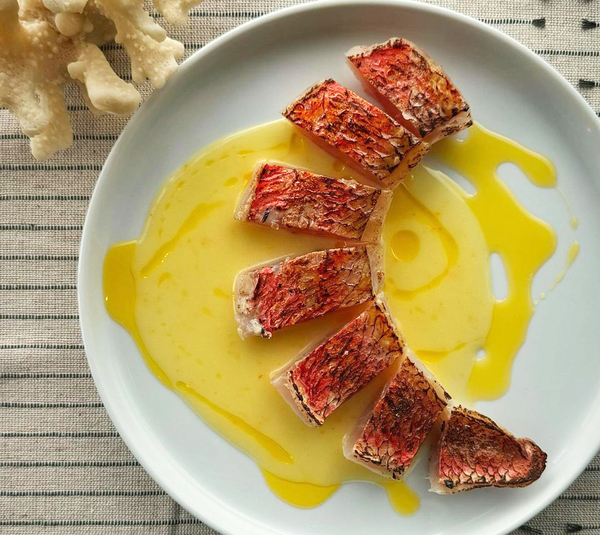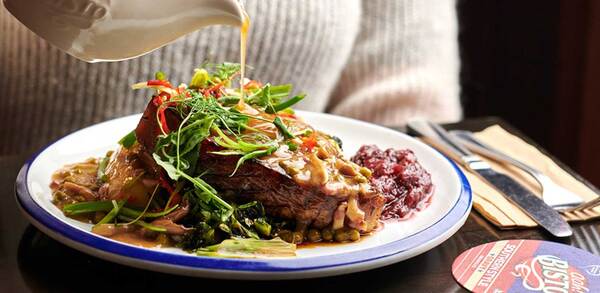Menuwatch: Opheem
Opheem is a new Birmingham restaurant that reflects the heritage and upbringing of chef Aktar Islam, says Neil Gerrard
A ktar Islam doesn't beat around the bush when describing his new Birmingham restaurant,which opened last month.
"Opheem is me," he declares.
The former chef-director of restaurant company Lasan Group, Islam is the son of Bangladeshi immigrants and worked in his father's restaurant as a young boy before eventually partnering with friend Jabbar Khan in 2002.
The fame helped Islam and Khan expand, and Islam's culinary knowledge of other cultures aided a number of openings, from Argentine Fiesta Del Asado to Indian street food venue Raja Monkey and North American Nosh & Quaff (since transformed into Jailbird).
But last year, Islam decided to leave Lasan Group and start his own venture. The thirst for knowledge that had led him to explore other cuisines prompted him to question Indian food, and Islam had come to feel Lasan Group was "stifling my passion".
The idea for Opheem formed while Islam was reading Ni'matnama, a late 15th-century book featuring the recipes of the Sultan of Mandu, Ghiyath Shah. In culinary terms, the period was something of a riot and Islam was struck by how avant garde the chefs of the era were. Not only was each region run by groups descended from Turks, Persians, the Mongols and Indians from Tamil Nadu, trade was also bringing European, African, Arabian and Chinese influences.
âThese guys took influences from everyone. So why has Indian food been sidelined to this weekly staple of a bowl of meat or vegetables suspended in an onion-based sauce?,â he asks.
Hence, Opheem is all about exploring Indiaâs culinary heritage and moving it on a level. Take Islamâs akbari dopiaza (£19) as an example. âDopiazaâ, traditionally chicken or meat in an onion sauce, means âonion twiceâ, he explains. âWe have taken it to the next step.â
The bird is broken down into parts: the legs and thighs are marinated and cooked over charcoal in the tandoori oven, while the breasts, which dry out more easily, are cooked separately, wrapped in the birdâs fat. Trim from the bird is turned into shish kebabs, with an onion-based chicken gravy from the carcass.
Taking up the idea of âonion twiceâ, Islam has brought other members of the onion family into play, adding slowly roasted leeks and a leek oil, as well as shallots roasted in lemon.
Elsewhere, he has created his own take on vindaloo (£20), exploring modern-day misconceptions about the dish.
âTraditional vindaloo is cooked with pork, wine and garlic. People think âalooâ means âpotatoâ but itâs actually from the Portuguese word for âgarlicâ,â he explains.

The pork loin is paired with smoked ham hock and trotter, as well as heritage carrots, which Islam contends go well with star anise. Islam has also made allowances with a âtraditionalâ section, featuring a classic bhuna with mutton and jalfrezi with chicken. The variety seems to have worked: the 68-cover restaurant is fully booked âfor the foreseeable futureâ.

And then thereâs a dish that Islam happily admits isnât Indian at all â" Wigmore cheese with cardamom honey and figs.
âItâs on the menu because I like cheese,â he explains. âThat is what Opheem is about. It is food that harks back to my heritage, but I was brought up in Birmingham and I am a product of modern society. It is all about the experience.â
48 Summer Row, Birmingham B3 1JJ
www.opheem.com
From the menu
To begin
- Parai (Goa): Fjord trout, cumin and pomegranate crust, Tokyo turnip £9.95
- Kukkut (Punjab): Goosnargh chicken, basil, coriander, marinated heritage tomato £10
To follow
- Allepy (Kerala): Cornish turbot, sabji, choi sum, tempered coconut milk, mango £21
- Qormah (Rajput): Roasted Norfolk quail, confit leg pakora, wild garlic couscous, fennel qormah braising liquor £19
- Bhuna gosht: Mutton, slow-cooked with whole spices in reduced onion sauce £16.95
- Palak paneer £13.95
To finish
- Chai (Bengal): Parfait, roasted pineapple, coconut sorbet £7
- Firni (Bengal): Bengali rice pudding, Yorkshire rhubarb, basil £7



